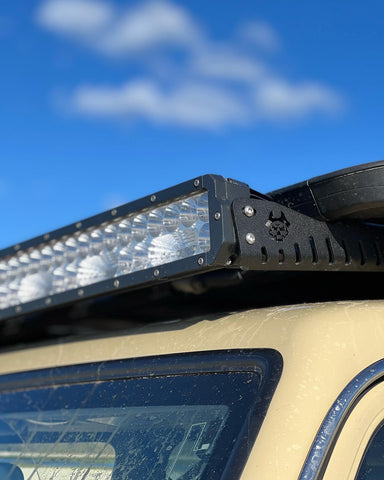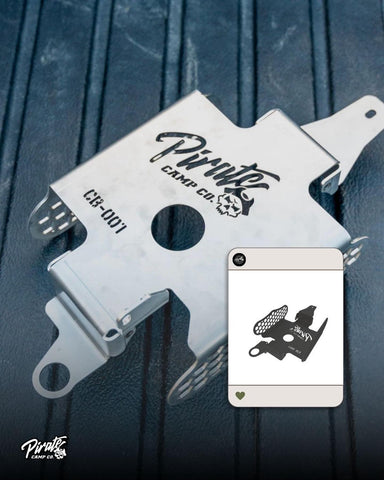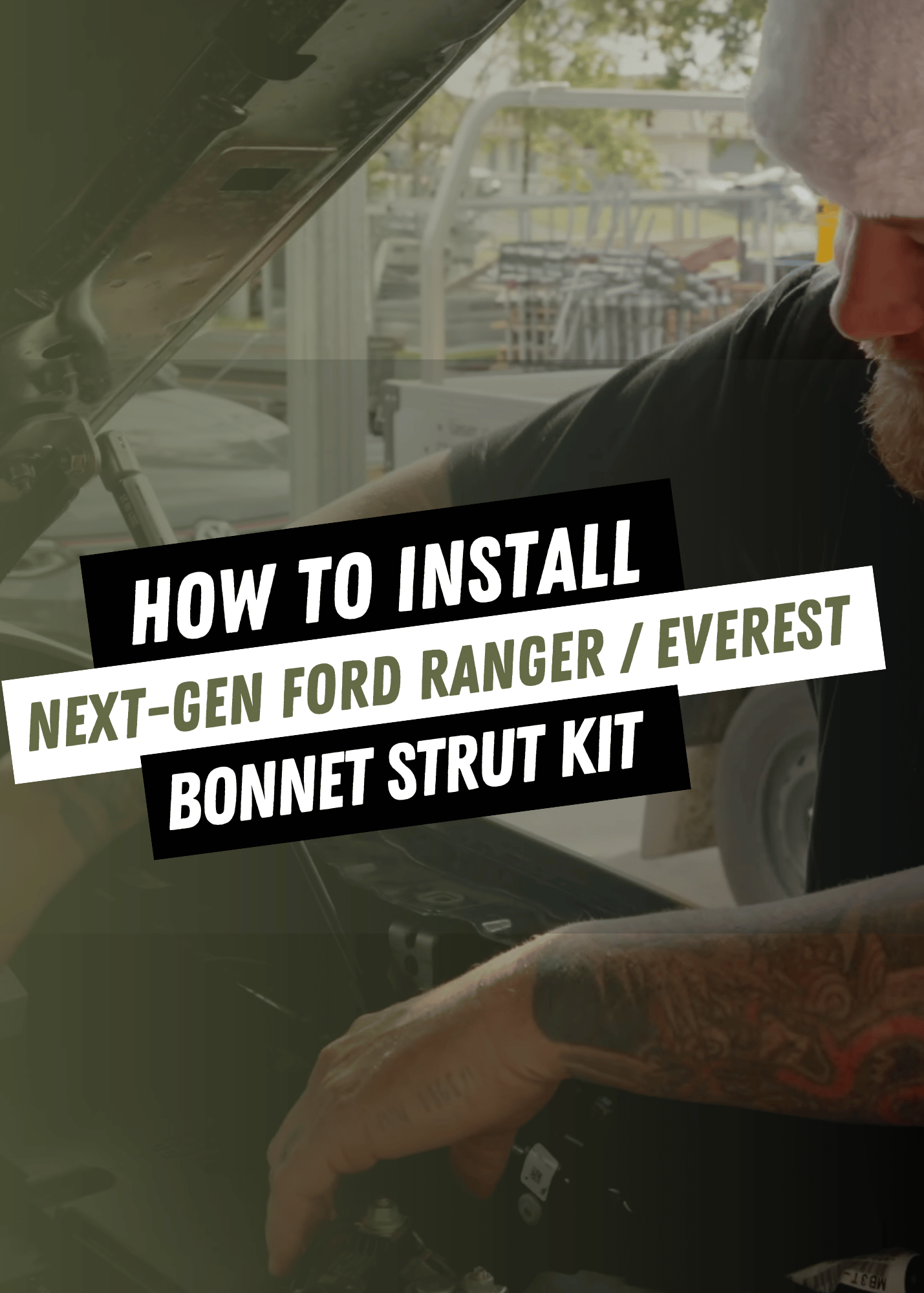
Planning for Off Road Recovery with the Right Offroading Accesssories
Off road recovery refers to the process of safely getting a vehicle unstuck or out of challenging situations when it's off the paved road, such as in mud, sand, rocks, or difficult terrain. In Australia, where you encounter vast and varied landscapes, off road recovery preparedness is crucial for anyone engaging in off roading adventures.
There’s no shame in it—you will need off road recovery at some point. So being prepared is key, and this post helps you understand what is involved in off road recovery so you can plan to have the right off roading accessories you need to recover your vehicle when you’re stuck.

Do I Need Recovery Gear?
The short answer: Yes.
The biggest mistake you can make is to assume you’re going to be just fine because you think you know the area. Just consider Australia's diverse landscapes and wide range of challenging environments. Then think about how changes in the weather can turn a once-familiar landscape into a boggy mess that you’re not prepared for.
To give you an idea of what you might experience and to underscore your need to prepare for recovery, here are some common terrains you’ll be traversing in your 4x4:
- Outback and desert areas: Vast arid regions with sandy and rocky terrain can be particularly challenging for off roaders. Getting stuck in deep sand or navigating rocky outcrops may require recovery.
- Beach driving: Coastal regions offer opportunities for beach driving, but soft sand can pose a significant recovery challenge, especially if your vehicle becomes bogged down.
- Muddy tracks: Wet conditions can turn dirt tracks into mud pits. Mud recovery can be challenging due to the loss of traction, and winching or towing may be necessary.
- Rainforests and jungles: In some northern parts of Australia, dense rainforests and jungles may require recovery if you veer off designated tracks or encounter obstacles like fallen trees.
- Mountainous terrain: Mountainous areas can have steep ascents and descents, as well as rocky and uneven trails. Recovery may be needed if your vehicle becomes immobilized on these rugged tracks.
- River crossings: Crossing rivers and streams can be part of off roading adventures, but water crossings can pose challenges. Vehicles can stall, and recovery may be required if they get stuck.
- Dunes and sand tracks: In regions like the Simpson Desert, navigating extensive sand dunes can be a thrilling experience, but it also carries the risk of getting stuck in soft sand.
- Bush and forest trails: Exploring remote bush and forest trails can lead to situations where recovery is needed, such as if you encounter fallen trees, mud, or obstacles.
- Rock crawling: Rock crawling in rocky and rugged terrain can be technically challenging. Recovery gear may be necessary if your vehicle becomes high-centered or stuck between rocks.
- High-country adventures: In the Australian Alps and other high-country areas, snow and ice conditions during winter can present recovery challenges.
- Remote tracks: Venturing into remote and less-traveled tracks increases the risk of getting stuck, as help may be far away.
- Boggy wetlands: Wetlands and swampy areas can be treacherous for off roaders, with vehicles sinking into muddy or waterlogged terrain.
Each terrain presents its own unique challenges, and being well-prepared with the right off roading accessories and skills is key to a safe and enjoyable off roading experience.

Getting the Right Off Roading Accessories for Recovery
When off roading in Australia, particularly in remote and rugged areas, it's crucial to be prepared for off road recovery situations. Preparation means getting yourself and your vehicle in order before you head out.
Here's how to prepare for off road recovery in Australia:
- Vehicle preparation: Ensure your vehicle is well-maintained and in good working order before heading off road. Regular servicing is essential. Equip your vehicle with off road modifications like skid plates, rock sliders, and raised suspension for added protection.
- Tire selection and maintenance: Choose off road tires suitable for the terrain you'll encounter (e.g., all-terrain or mud-terrain tires). Maintain proper tire pressure and consider carrying an air compressor and tire repair kit.
- Recovery gear: Invest in essential recovery gear, including recovery straps, shackles, a high-lift jack, a winch, a snatch block, and a shovel. Make sure you have appropriate tools to use this gear effectively and safely.
- Communication and navigation: Carry communication devices such as a satellite phone, two-way radios, or an EPIRB (Emergency Position Indicating Radio Beacon) for remote areas. Have maps, a GPS unit, and a compass for navigation.
- Safety equipment: Always carry a comprehensive first aid kit and know how to use it. Pack emergency supplies like extra water, food, warm clothing, and a survival blanket.
- Know vehicle recovery techniques: Familiarize yourself with proper recovery techniques, including how to use recovery straps and winches safely. Know when to use recovery points on your vehicle and how to attach recovery equipment securely.
- Terrain assessment: Before attempting challenging terrain, get out of your vehicle to assess the situation. Look for the safest path, potential hazards, and secure anchor points for winching.
- Travel together: Whenever possible, travel with at least one other vehicle for assistance in case of emergencies.
- Environmental responsibility: Respect the environment and leave no trace. Stick to designated tracks and avoid damaging fragile ecosystems.
- Training and knowledge: Consider taking an off road driving course to learn proper techniques, vehicle recovery, and safety procedures.
- Emergency plan: Create an emergency plan that includes how to contact help and what to do in case of severe weather, vehicle breakdowns, or getting lost.
- Check weather and road conditions: Check weather and road conditions before your trip and be prepared for changing conditions, especially in remote areas.
Australia offers diverse and challenging off roading experiences, so proper preparation and responsible off roading practices are essential to ensure your safety and minimize your impact on the environment. Taking your 4x4 off road is an absolutely rewarding experience, but getting it back home makes your time out even better. So make sure you explore all that Pirate Camp has to offer to ensure you gear up with the best off roading accessories for your vehicle. That way, you can be sure to enjoy your off roading experience and be able to come back for more.













